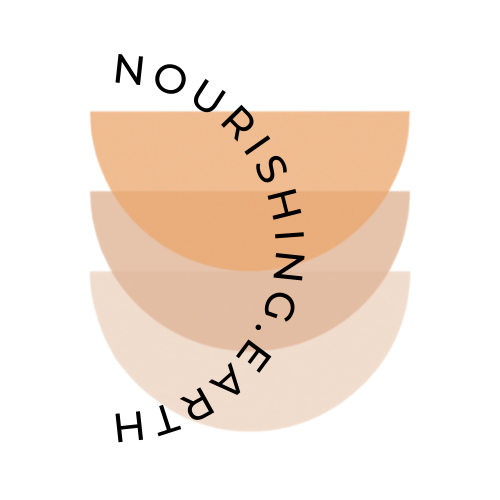Gluten-Free Living: 15 Tips to Avoid Hidden Gluten in Your Diet
Introduction
In my previous article, "The Gluten Debate: Exploring Its Effects on the Body, Who Should Avoid It, and Why Some People Might Not Need to", we discussed the reasons why some people may need to eliminate gluten from their diet. In this article, we will be focusing on tips and tricks to avoid gluten in your diet, as well as common foods that may contain hidden gluten. Whether you have celiac disease, non-celiac gluten sensitivity, or just want to try a gluten-free diet for health reasons, these tips will help you navigate your gluten-free journey.
Start with whole foods The easiest way to avoid gluten is to focus on whole, unprocessed foods such as fruits, vegetables, meat, fish, and legumes. These foods are naturally gluten-free and are packed with nutrients that are essential for good health.
Read food labels carefully If you are buying packaged foods, it's important to read the labels carefully. Look for the words "gluten-free" or "contains no gluten ingredients". If a food does contain gluten, it should be listed in the ingredients list.
Be aware of hidden sources of gluten Gluten can be hidden in a variety of foods, including soups, sauces, gravies, and dressings. It can also be found in unexpected places such as soy sauce, beer, and even some medications. Always read the labels carefully and ask questions if you are unsure.
Watch out for cross-contamination If you have celiac disease, even trace amounts of gluten can be harmful. Make sure to avoid cross-contamination by using separate cutting boards, utensils, and cookware for gluten-free foods. Also, be careful when dining out as many restaurants may not have a separate gluten-free kitchen.
Choose gluten-free grains Grains such as wheat, barley, and rye contain gluten. However, there are many gluten-free grains to choose from such as quinoa, rice, corn, and millet. These grains are not only delicious but also rich in fiber and other essential nutrients.
Be careful with oats Although oats do not contain gluten, they are often contaminated with gluten during processing. Look for certified gluten-free oats if you want to include them in your diet.
Use gluten-free flours If you love to bake, there are many gluten-free flours to choose from such as almond flour, coconut flour, and tapioca flour. These flours can be used in place of wheat flour in many recipes.
Avoid processed foods Processed foods such as cookies, crackers, and chips often contain wheat flour as a primary ingredient. These foods are also often high in calories, sugar, and unhealthy fats. Stick to whole, unprocessed foods whenever possible.
Experiment with gluten-free substitutes There are many gluten-free substitutes available such as brown rice pasta, and buckwheat bread. While they may not taste exactly like their gluten-containing counterparts, they can be a tasty and satisfying alternative.
Watch out for hidden gluten in supplements and vitamins Gluten can be found in many supplements and vitamins. Always read the labels carefully and ask your healthcare provider if you are unsure.
Be aware of gluten in cosmetics and personal care products Gluten can also be found in cosmetics and personal care products such as shampoo and lotion. If you have a gluten sensitivity, it's important to check the labels on these products as well.
Plan ahead when dining out When dining out, it's important to plan ahead. Look up the restaurant's menu online and call ahead to ask about gluten-free options. Also, be sure to let your server know about your dietary needs.
Educate your friends and family It's important to educate your friends and family about your dietary needs. Let them know what foods you can and cannot eat, and encourage them to learn more about gluten-free living. This can make social gatherings and family meals much easier and more enjoyable.
Use caution when traveling If you are traveling, it's important to plan ahead and research gluten-free options in advance. Pack gluten-free snacks and meals for the trip, and be sure to let your hotel or accommodations know about your dietary needs.
Don't give up on your favorite foods Finally, it's important to remember that you don't have to give up your favorite foods just because you are avoiding gluten. With a little creativity and experimentation, you can still enjoy delicious and satisfying meals.
Conclusion
Eliminating gluten from your diet can be a challenge, but with these tips, you can navigate the world of gluten-free living with confidence. Remember to read labels carefully, be aware of hidden sources of gluten, and plan ahead when dining out or traveling. With a little education and preparation, a gluten-free lifestyle can be a healthy and delicious way to nourish your body and your soul.
References
Vici G, Belli L, Biondi M, Polzonetti V. Gluten free diet and nutrient deficiencies: A review. Clin Nutr. 2016 Oct;35(5):1236-41.
Leffler DA, et al. The gluten-free diet: recognition, assessment, and management. J Clin Gastroenterol. 2015 Mar;49 Suppl 1:S7-13.
Elli L, et al. Diagnosis of gluten related disorders: Celiac disease, wheat allergy and non-celiac gluten sensitivity. World J Gastroenterol. 2015 Jun 21;21(23):7110-9.
Silvester JA, et al. The Role of the Gluten-Free Diet in the Management of Irritable Bowel Syndrome and Related Disorders. Nutrients. 2018 Oct;10(10):1483.
Harvard Health Publishing. Going gluten-free just because? Here’s what you need to know. Harvard Health Blog. https://www.health.harvard.edu/blog/going-gluten-free-just-because-heres-what-you-need-to-know-201302205916. Published February 20, 2013.
Lasa A, Miranda J, Zubiaurre I. Nutritional and dietary aspects of celiac disease. Nutr Clin Pract. 2011 Apr;26(2):163-73.
Thompson T, Dennis M, Higgins LA, Lee AR, Sharrett MK. Gluten-free diet survey: are Americans with coeliac disease consuming recommended amounts of fibre, iron, calcium and grain foods? J Hum Nutr Diet. 2005 Dec;18(6):163-9.
Rubio-Tapia A, et al. ACG clinical guidelines: diagnosis and management of celiac disease. Am J Gastroenterol. 2013 May;108(5):656-76.
Catassi C, et al. Diagnosis of non-celiac gluten sensitivity (NCGS): the Salerno experts' criteria. Nutrients. 2015 Jun;7(6):4966-77.
Fasano A, Catassi C. Clinical practice. Celiac disease. N Engl J Med. 2012 Dec 13;367(24):2419-26.

